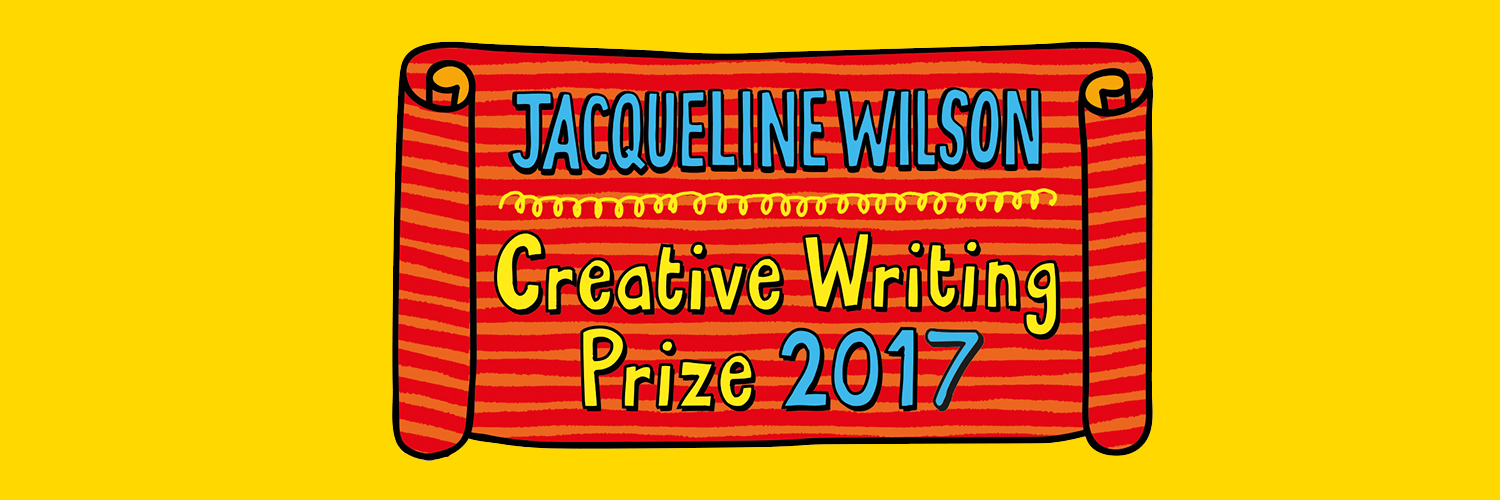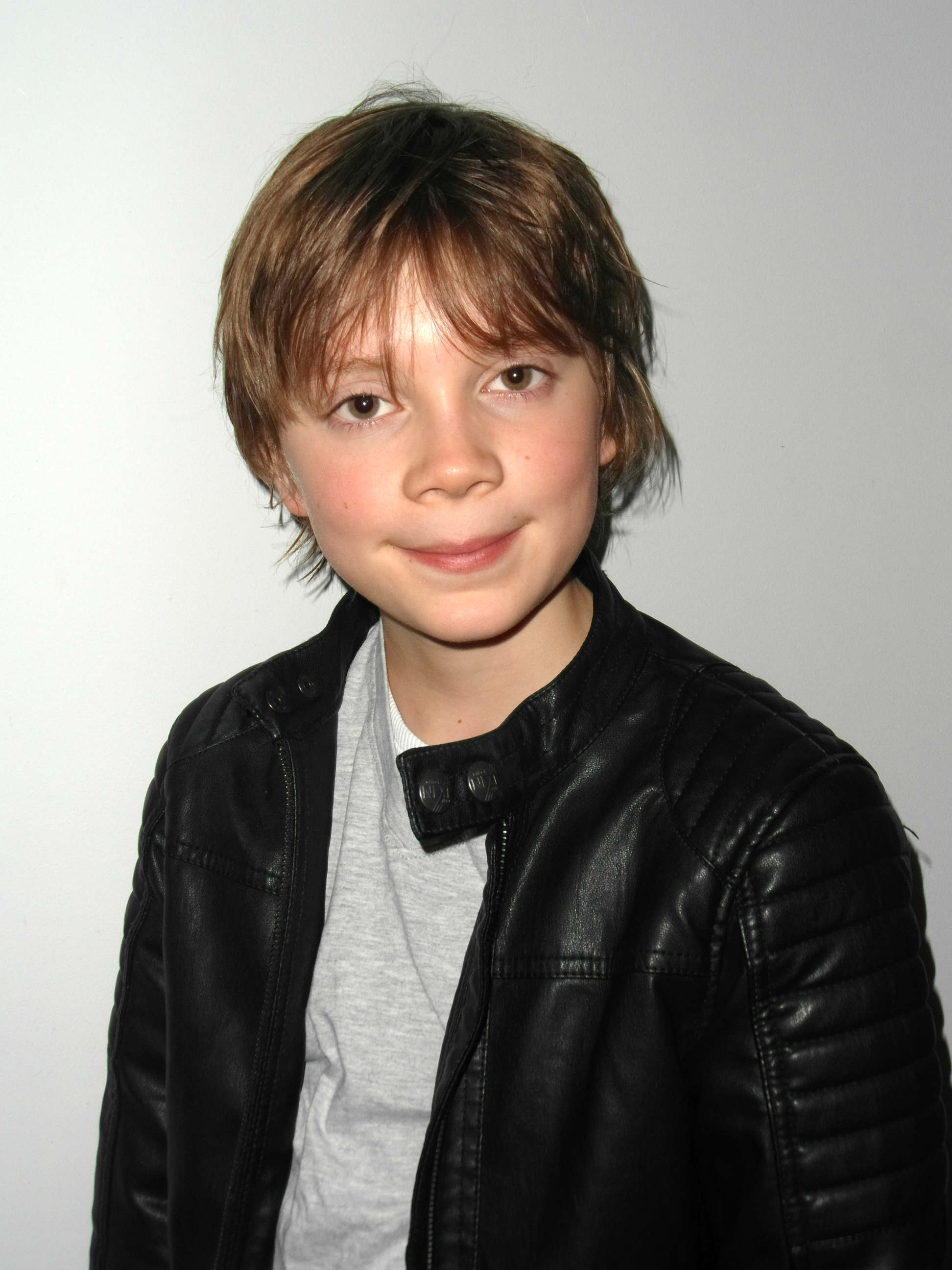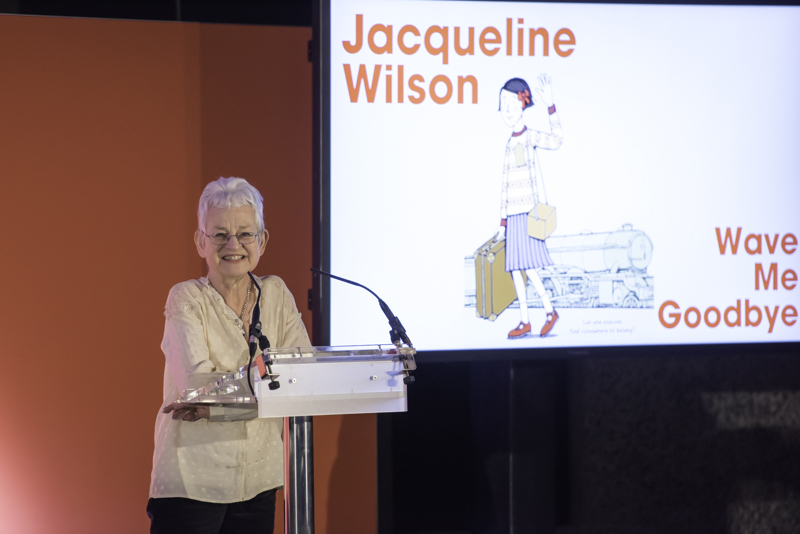- Home |
- Search Results |
- The winner of the Jacqueline Wilson Creative Writing Prize 2017 is…

10-year-old Daniel Stockwell from Burbage in Leicestershire has won this year’s Jacqueline Wilson Creative Writing Prize.
For this year the challenge, to tie in with the theme of Jacqueline’s book Wave Me Goodbye, featuring evacuees in World War II, children were asked to ‘write a letter to someone who lives far away’.

Daniel’s letter ‘Woof from Antarctica’ was a highly original, imaginative and extremely well-written letter which featured a boy writing to his dog from Antarctica! Daniel will win the incredible money-can’t-buy prize of being published in an exclusive WH Smith edition of the paperback of Wave Me Goodbye, which will publish on 8 February 2018. He also wins the opportunity to meet with Jacqueline Wilson, receive £100 worth of books, a year’s subscription to First News and a bundle of Jacqueline Wilson books for his school (Burbage Junior School in Leicestershire).
On winning the prize, Daniel said:
'I feel thrilled and excited to win the competition. Over the summer holiday I became totally engrossed researching and writing this letter and I’m really happy that other people find it interesting too. I got the idea for the letter, when I was looking up how to help a tired bee and I found out that the only place on Earth where bees are not found is Antarctica. I then started reading about Antarctica and thought that a place so different from everywhere else on Earth would be a great setting for my letter. I can’t believe that Jacqueline Wilson likes it, she’s such an awesome writer.'

Jacqueline Wilson said:
'I was so pleased that lots of children wanted to enter this year’s Creative Writing Prize and I so enjoyed taking part in the judging process. Daniel’s letter shone out from the other entries as it was truly original and he is a worthy winner.'
A huge congratulations to Daniel! Read his winning letter below.
Daniel's winning letter
‘Woof’ from Antarctica
Dalton VI Base
Antarctica
26/12/2017
Hey Boy,
Bolt, I know you can’t read, but I've asked Grandad to read this to you after he’s taken you out for your walk. I've sent you my favourite socks (Grandad, would you please give Bolt these to sniff when you read this letter to him. Sorry if they’re a bit pongy – I've not washed them for a while to make sure they REALLY smell of me!).
The best day of my life was my seventh birthday, the day we got you. The worst day was when Mum said we couldn’t take you with us. It’s been one year and two months since you last jumped on my bed and tickled my face with your wet nose, trying to wake me up so that we could run around the house and play together. I've worked out this is around ten doggie years (as long as I've been alive in human years, so it must seem like ages to you too).
When Mum and Dad told me that our family had been selected to be part of a three year European Space Agency experiment, at first I thought it meant we were being sent on a three year space mission to explore strange new worlds or, even worse, perhaps aliens had already made first contact and world super powers had agreed some kind of human–alien exchange. HUGE relief when Mum explained that we were going to be part of an experiment to spend three years on Dalton VI – the British station in Antarctica investigating how people adapt to life in isolated locations ready for long-time space flight.
I was SO excited. I assumed that the whole family would be going, which of course included you. Then Mum explained that the Antarctic Treaty (that’s the law here) doesn’t allow people to bring ANY animals to Antarctica. I suppose that makes sense – they don’t want a dog eating the penguins. Then a seal might eat the dog, a whale might eat the seal that ate the dog that ate the penguin that ate whatever penguins eat. The next thing you know, whales in Antarctica would be trying to bark!
Days here are very different to days back home. There’s only two seasons in Antarctica: cold and colder. Or better, light and dark because during summer months (December–March), the sun doesn’t set at all so we have four months of 24-hour daylight. In April, temperatures plunge into the permanent midnight of winter, bringing total darkness.
Many scientists visit during the summer months and Dalton VI becomes a hive of activity. Children on the station have lessons during the morning but we’re usually allowed to play outside or go on ski-doo trips to look at the seals and penguins the rest of the day. I wish you were here to play outside with me. Sometimes I imagine you running around on the powder-white ice, chasing off the skuas (a kind of seagull type bird the size of a giant turkey), that swoop down with wings outstretched like a 727 to craftily steal whatever they can.
By April most scientists have left the station and only the families taking part in the experiment stay over winter. It’s far too cold for airplanes to fly so the 42 of us have no way out of Antarctica for a whole nine months! Not until the next sunrise comes and spring returns to the bottom of the world.
Winter last year seemed to last forever. Mum was busy measuring the ozone hole and Dad had four meals a day to cook (‘the most important job in the station,’ he says). I've played a lot with Jack, my friend from one of the other families. I told him lots about you – how even though you took up my entire bed at home, you kept me warm and how you smile (not sure he believed me!).
‘Not many children can say they’ve lived in Antarctica,’ Mum says. Antarctica IS beautiful and a very special place (it’s like nowhere else on Earth) but it doesn’t have YOU looking out of the window, waiting for me to come home every day, greeting me at the door with a wagging tail. There are so many things that I miss about you, Bolt. Jack is my friend but you are my best friend. See you in one year and ten months’ time (about thirteen doggie years to you!).
Daniel
xxx
Press Enquiries
For more information on this story please get in touch via our media contacts.